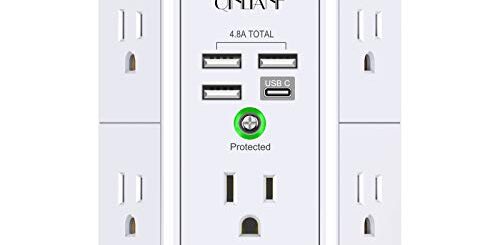Audiobook or Reading? Science Shows there is no Difference to your Brain
Life can be busy and finding the time to sit and read isn’t easy- but that doesn’t mean you have to go without. Now a day’s many of us enjoy our stories in a variety of different ways; books, eBooks, audiobooks or on our cell phones. A great option is to pop in the ear buds, pop on an audiobook, and carry on cooking dinner, exercising, or puttering around the house. However, it raises the question whether or not a listener is getting the same experience as a reader when it comes to engaging with a novel?
For the most part, listening to an audiobook and reading a book are relatively the same similar experiences. Obviously the information and content is the same, and emerging evidence suggests that, to our brains, there’s very little difference between reading and hearing a story.
In a 2016 study, one group of participants listened to sections of Laura Hillenbrand’s book Unbroken, while a second group read the same parts on an e-reader. In addition, there was a third group which listened to the audio version while reading along at the same time. When finished, all the participants took a quiz designed to measure how well they had absorbed and understood the material. Lead researcher Rogowsky told Time Magazine, “We found no significant differences in comprehension between reading, listening, or reading and listening simultaneously.”
In a 2019, this idea was taken a step further and reserachers from the Gallant Lab at UC Berkeley used MRI scans to look at the brains of nine participants while they listened and then read a stories from “The Moth Radio Hour”, a popular podcast series. To the researchers’ surprise, they found that there was no difference between what cognitive and emotional parts of the brain were activated whether participants listened or read the same story.
Researchers were specifically interested in how each word was processed by the brain’s cortex. From the images they gathered through scans, they created maps of the participants’ brains, noting that different areas of the brain helped the participants’ interpret the meaning of each word. The study showed that whether the stories were consumed through reading them in a book format or listening to an audiobook version, the same cognitive and emotional areas were triggered.
They mapped out the results were presented in an interactive diagram.Essentially, it didn’t matter the medium, our brains seem to connect to the semiotics (aka. meaning), whether the information was presented through text or through spoken sounds. Both forms communication were received in the same way in the end, although through slightly different processes in the brain. The study’s lead author, Fatma Deniz shared with Berkeley Psychology. “At a time when more people are absorbing information via audio books, podcasts and even audio texts, our study shows that, whether they’re listening to or reading the same materials, they are processing semantic information similarly.”
Researchers postulated that the results of this study could be hugely impactful in future studies. Deniz shared in an interview with Discover Magizine, “this study could make a case for people who struggle with reading…to have access to stories in different formats. Kids who grow up with dyslexia, for example, might benefit from audio books that are readily available in the classroom.” And it turns out- she was correct.
In a March 2023 study, Disentangling influences of dyslexia, development, and reading experience on effective brain connectivity in children, researchers at the University of Zurich, examined the brain connectivity of the reading network during an explicit phonological lexical decision task. In layman’s terms, participants were given a task; they would hear real words and made up words and had to quickly determine which ones were real. Traditionally, this style of testing has been done visually, with participants presented with a single word, usually popping up in the center of a computer screen. The participant’s task is to as quickly and as accurately as possible, choose whether the word is a real word in their language.
This is the first study to look at differences between children with typical reading skills and children with dyslexia concerning the connectivity of the reading network of the brain. The study showed similar results to the 2019 study (above), in so much that the prossessing connections developed in the brain are different whether participants received information in verbal or written format, however the end result was the same- understanding the words and meaning. (Although it should be noted that participants with dyslexia showed a delay in the processing speed and researchers are recommending more studies).
All that being said, whether you’re reading or listening to a story the difference is minuscule in the end. In fact, it may be beneficial to consume books through different mediums in order to activate different centers of the brain and build stronger connections between them. Mental stimulation slows down the progression of degenerative brain health conditions such as dementia and Alzheimer’s. Audiobooks stimulate the auditory cortex which is part of the temporal lobe that processes auditory information and aides in performing basic and higher functions. Whereas, reading a book engages the visual functions, which are mostly controlled in the occipital lobe of the brain located at back of the skull.
Regardless of your preferences, when it comes to reading the big take away is not to beat yourself up if you haven’t the time to sit and read, find a method that works for you. Also, if you need to “cheat” and listen to a book to save time, it seems like your book club buddies will never know anyway.
An avid book reader and proud library card holder, Angela is new to the world of e-Readers. She has a background in education, emergency response, fitness, loves to be in nature, travelling and exploring. With an honours science degree in anthropology, Angela also studied writing after graduation. She has contributed work to The London Free Press, The Gazette, The Londoner, Best Version Media, Lifeliner, and Citymedia.ca.


